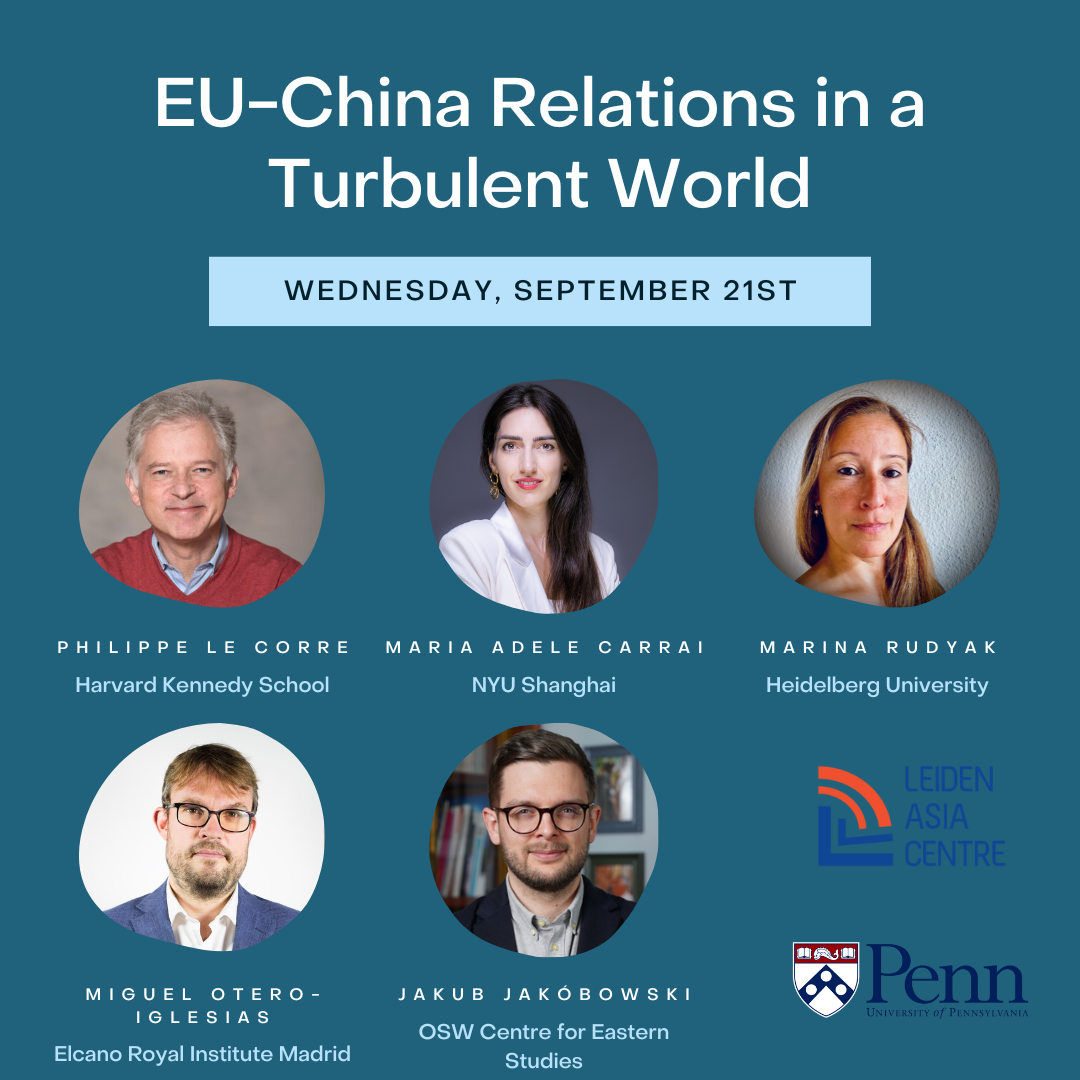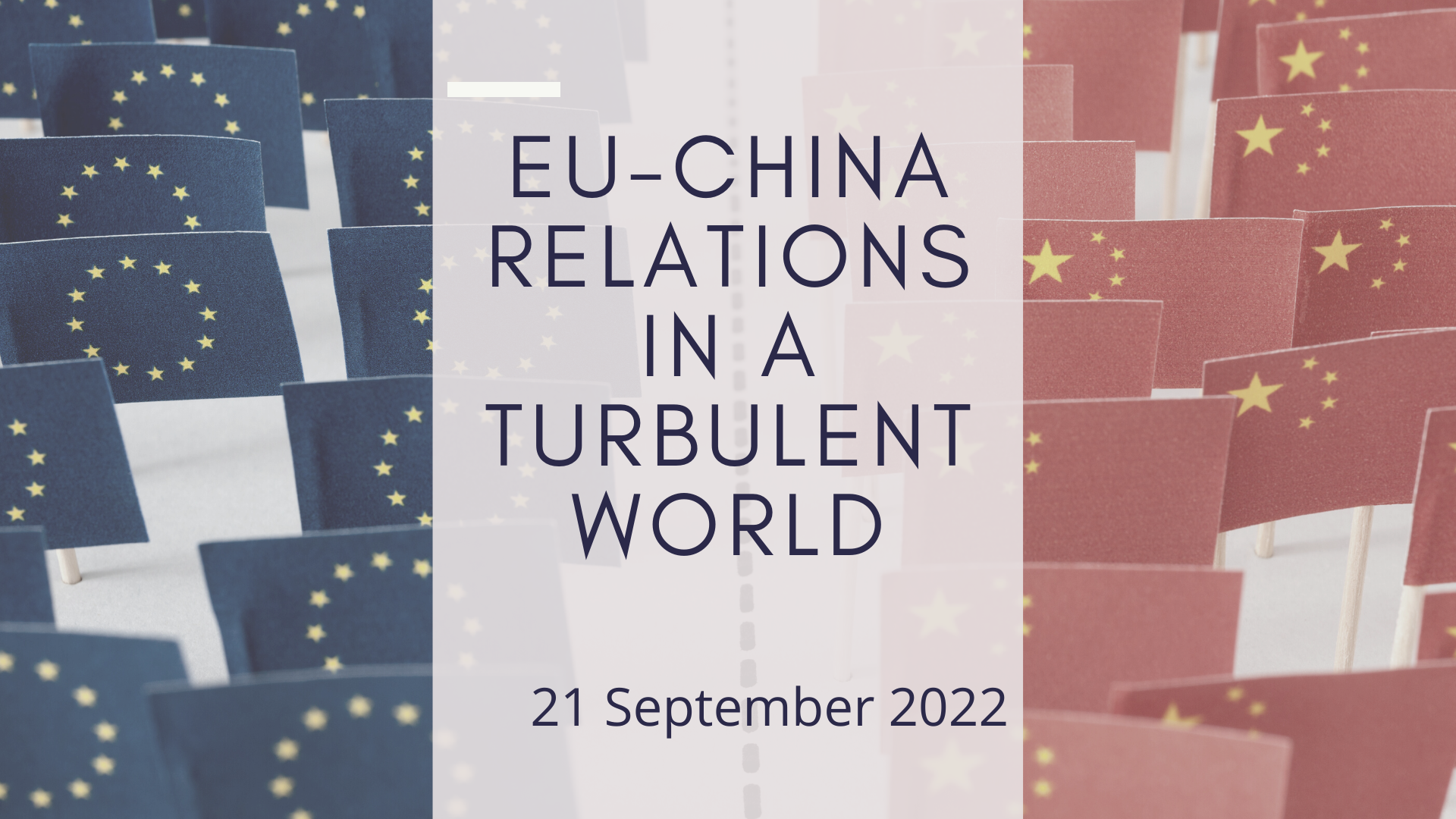Note: this event will not be livestreamed.
This panel will examine the evolving EU-China relations in the context of global uncertainties, such as the COVID-19 pandemic and China’s Zero-COVID policy, the US-China trade war and rising tensions across the Taiwan Strait, as well as a perceived closeness between Russia and China.
How does all of this affect EU-China relations? What challenges does the EU face when it comes to China? To discuss this we have invited four leading experts.
This event is organised in collaboration with the Ford Foundation as part of the Transatlantic and European Dialogue on China project, which aims to foster new and innovative approaches to the challenges posed to both Europe and the United States by China’s rise and it assembles a core group of both European and American scholars/experts.
Moderator:

Philippe Le Corre is a Research Fellow at the Harvard Kennedy School and a Visiting Professor at ESSEC Business School. He is also an Affiliate with the French Institute for East Asia (IFRAE-CNRS) and the John K. Fairbank Center for Chinese Studies at Harvard, and an Associate Fellow with Fondation pour la Recherche stratégique in Paris. He is the author of several books on China including China’s Offensive in Europe (Brookings Institution Press, 2016), and contributed chapters to several edited volumes including “Does the Rise of China Threaten the Transatlantic Partnership?” in The China Questions 2 (Harvard University Press, 2022) and “China’s Belt and Road Initiative: Implications for Europe” in China-US-Europe Relations in a New Era, (Routledge, 2020).
Speakers
Miguel Otero-Iglesias is Senior Analyst at Elcano Royal Institute and Professor and Research Director of International Political Economy at the School of Global and Public Affairs and the Centre for the Governance of Change at IE University in Spain. In addition, he is Senior Research Fellow at the EU-Asia Institute at ESSCA School of Management in France.
His main areas of expertise are: international and comparative political economy, international and European monetary affairs, the international financial architecture, global economic governance and the power triangle between the US, the EU and China and theories of money. He is the author of The Euro, the Dollar and the Global Financial Crisis: Currency Challenges seen from Emerging Markets (New York, Routledge, 2015).
Maria Adele Carrai is an Assistant Professor of Global China Studies at NYU Shanghai. Her research explores the history of international law in East Asia and investigates how China’s rise as a global power shapes norms and redefines the international distribution of power. She co-leads the Research Initiative Mapping Global China and is the author of Sovereignty in China. A Geneology of a Concept since 1840 (CUP 2019) and co-editor of The China Questions 2 – Critical Insights into US-China Relations (HUP 2022). Before joining NYU Shanghai, she was a recipient of a three-year Marie-Curie fellowship at KU Leuven.
Marina Rudyak is an Assistant Professor for Chinese Cultural Studies at Heidelberg University and interim professor for Chinese Politics at Frankfurt University. Her research focuses on China’s international development cooperation and the Chinese foreign policy discourse. Previously, she was a policy advisor with the German Agency for International Cooperation (GIZ) in Beijing. She regularly advises governmental organizations and NGOs on matters of China’s foreign aid and international development cooperation. Rudyak is the co-founder of the Decoding China Dictionary. She studied Chinese Studies and Public Law in Heidelberg and Shanghai, and holds a Ph.D. and an M.A. in Chinese Studies from Heidelberg University. She grew up in Russia and Germany, and speaks German, Russian, English and Chinese.
Jakub Jakóbowski is European China Policy Fellow at MERICS. He specializes in China’s international political economy, China’s economic footprint in Central and Eastern Europe (CEE) and the post-Soviet space, as well as EU-China relations. Jakub is based at the Centre for Eastern Studies (OSW), a public think-tank based in Warsaw, where he is coordinator of the Connectivity in Eurasia project and a Senior Fellow at the China Programme. He holds a PhD from Warsaw School of Economics (SGH).



